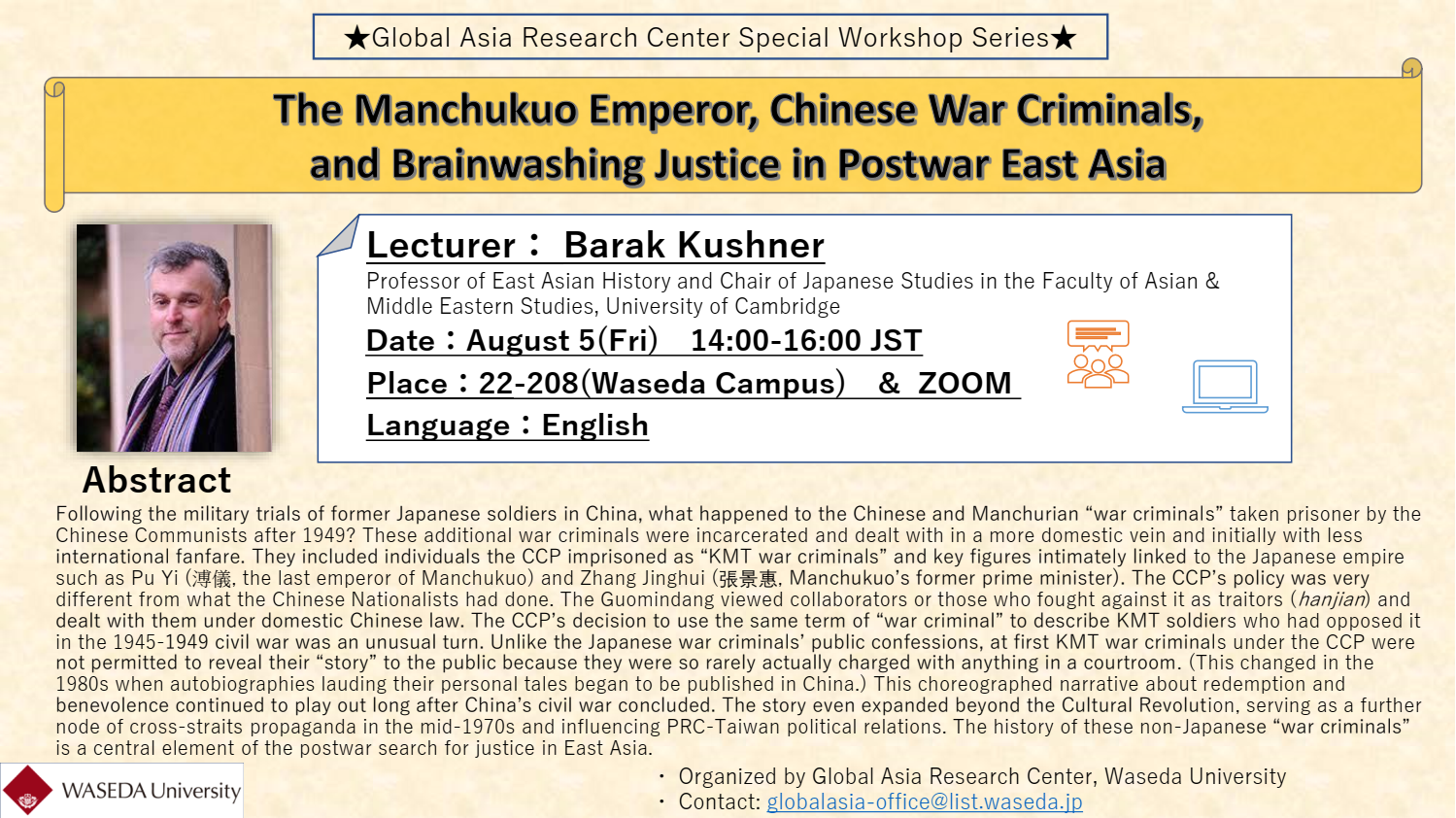The Global Asia Research Center holds an online workshop by Barak Kushner, Professor of East Asian History, University of Cambridge.
Title: The Manchukuo Emperor, Chinese War Criminals, and Brainwashing Justice in Postwar East Asia
Lecturer: Barak Kushner (Professor of East Asian History and Chair of Japanese Studies in the Faculty of Asian & Middle Eastern Studies, University of Cambridge)
Date & Time: August 5(Fri), 2022, 14:00-16:00 (Japan Time)
Place: 22-208(Waseda Campus) & ZOOM
Language: English
Eligible participant: student, faculty member, and public
Contact: globalasia-office [at] list.waseda.jp
Abstract
Following the military trials of former Japanese soldiers in China, what happened to the Chinese and Manchurian “war criminals” taken prisoner by the Chinese Communists after 1949? These additional war criminals were incarcerated and dealt with in a more domestic vein and initially with less international fanfare. They included individuals the CCP imprisoned as “KMT war criminals” and key figures intimately linked to the Japanese empire such as Pu Yi (溥儀, the last emperor of Manchukuo) and Zhang Jinghui (張景惠, Manchukuo’s former prime minister). The CCP’s policy was very different from what the Chinese Nationalists had done. The Guomindang viewed collaborators or those who fought against it as traitors (hanjian) and dealt with them under domestic Chinese law. The CCP’s decision to use the same term of “war criminal” to describe KMT soldiers who had opposed it in the 1945-1949 civil war was an unusual turn. Unlike the Japanese war criminals’ public confessions, at first KMT war criminals under the CCP were not permitted to reveal their “story” to the public because they were so rarely actually charged with anything in a courtroom. (This changed in the 1980s when autobiographies lauding their personal tales began to be published in China.) This choreographed narrative about redemption and benevolence continued to play out long after China’s civil war concluded. The story even expanded beyond the Cultural Revolution, serving as a further node of cross-straits propaganda in the mid-1970s and influencing PRC-Taiwan political relations. The history of these non-Japanese “war criminals” is a central element of the postwar search for justice in East Asia.

